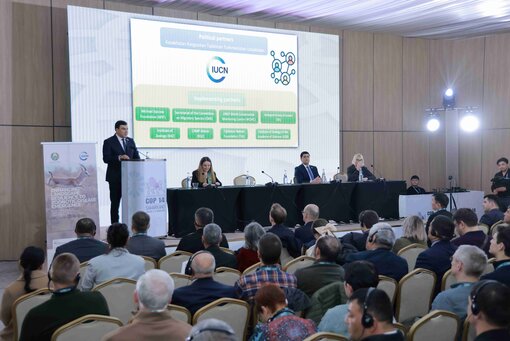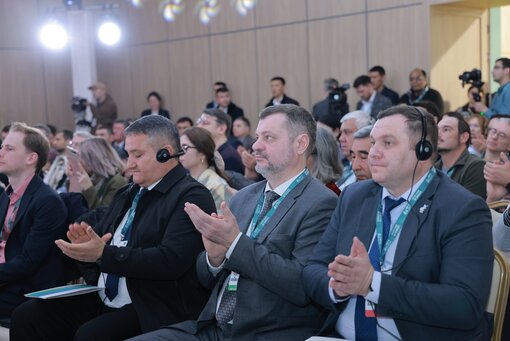The regional project aims to reduce the risk of zoonoses – diseases that are naturally transmissible from animals to humans – in Central Asia. The risk of zoonoses in Central Asia is exacerbated by the loss of biodiversity and changes in human-animal interactions. As part of the newly launched initiative, the project partners, supported by political partner institutions from all five Central Asian countries, will implement measures to prevent the occurrence and spread of zoonoses. The aim is to consolidate an effective regional network of protected areas, strengthen conservation measures and wildlife management to mitigate disease risks, and promote the latest advances in zoonotic disease research and technology.
“The effective implementation of the One Health concept requires cooperation at all levels, from the local to the international level. We are enthusiastic about supporting this comprehensive and ambitious initiative, which promises multiple benefits for people, animals and ecosystems in Central Asia,” emphasized Dr. Bettina Hoffmann, Parliamentary State Secretary at the Federal Ministry for the Environment, Nature Conservation, Nuclear Safety and Consumer Protection (BMUV), in her opening remarks at the Side Event.
Coordinated by IUCN, the “One Health Central Asia” initiative gathers international partners, including the Michael Succow Foundation, the Secretariat of the Convention on Migratory Species (CMS), the UNEP World Conservation Monitoring Centre (WCMC), and the Zoological Society of London (ZSL). National partners in the target countries are CAMP Alatoo in Kyrgyzstan, the Institute of Zoology of Kazakhstan, the Institute of Zoology of the Uzbek Academy of Sciences, and the Tajik Nature Foundation (TNF).
Further information:
IUCN: One Health nature conservation project in Central Asia launched by IUCN and partners - Press release | IUCN
DAZ Asia: IUCN und Partner rufen „One Health Central Asia“ ins Leben - Deutsche Allgemeine Zeitung (daz.asia)
![[Translate to EN:] Banner Stiftung](/fileadmin/_processed_/b/c/csm_banner-stiftung_fee6c1c492.jpg)

